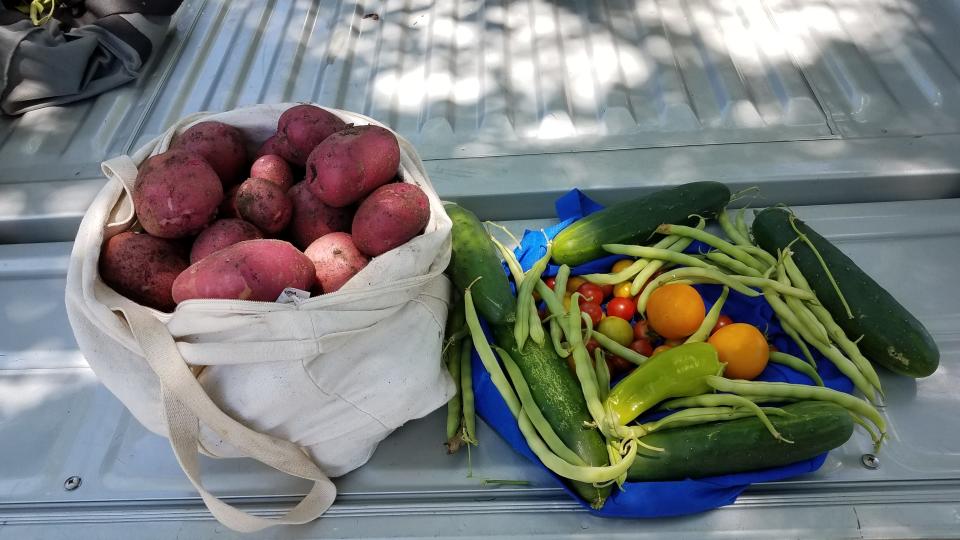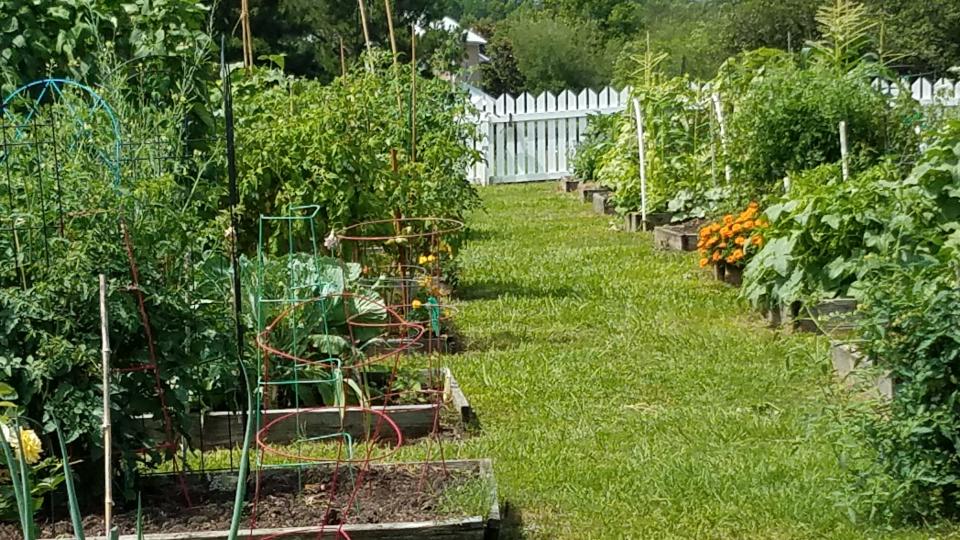As we move along in spring the weather has been improving day by day and the urge to get involved with the earth may be growing. Why not consider getting out and growing some of your own vegetables.
There are resources available to assist in this effort. Both the pride as well as the effort of producing and consuming some of your own fresh vegetables should not be discounted. Add to this the flavor and nutritional value as well as supporting the environment.
I have been involved with gardening most of my life dating back to gardening in Minnesota with my father in the 1960s to my last 12 years as an individual who helped establish the Southwood Community Garden.
The intent of today’s column is to provide an overview of some of the resources available to help foster the establishment and sustainability of community gardens. It is not meant to be an all-inclusive listing of all the players. A column in 2022 provided similar information.
Community grocery: Community Co-op Market is a beneficial resource for healthy food | Mark Mahoney
Community Gardens make important contributions to all facets of sustainability. By providing access to healthy produce, organic gardens save participants money, increase access to healthy food, and cut down the amount of fossil fuel used to get food to the dinner table.
They also provide us with the ability to foster community, and provide an opportunity for social bonding and skill building — something we desperately need in our increasing societal polarization.
Leon County Community Gardens Program
Leon County’s Community Garden Program offers technical, material and grant support to citizens looking to start or revitalize a community garden anywhere in the County. Grant funds are awarded on a first-come, first-served basis as long as they are available.
Gardens are separated into three categories: County, School Stakeholder, and Non-School Stakeholder. A more detailed description of the program including application forms are available at cms.leoncountyfl.gov.
According to the Leon County Office of Sustainability Leon County has supported 62 community gardens since 2012 through our Community Garden Grant program which awards grants of up to $1,000 to start or support community gardens in Leon County.
They would love to support more community gardens, so if you have an idea for a garden and would like help exploring it, please do not hesitate to contact them.
City of Tallahassee Community Gardens
Some information from the City of Tallahassee website on community gardens is provided below:
The City of Tallahassee is happy to assist citizens in the development of community gardens. They encourage citizens to work with their neighbors to build, cultivate, and maintain gardens on public lands. The benefits are numerous. Not only can a household introduce fresh produce into their diet, but community gardening is an excellent way to build community too.
Go to talgov.com for details on the community gardening program.
Whether you are a home or community gardener, there are a variety of resources available to assist you or your community in answering questions and/or providing resources.
Information and resources
Two organizations, the Damayan Garden Project (damayangarden.org) and Lott’s Community Garden (lottscommunitygardens.com) are examples of groups involved in assisting the community to foster the establishment and continuity of community gardens as well as contributing produce to help feed those in need. These two organizations utilize volunteers and are examples of non-governmental assistance.
The Leon County Master Gardeners Program at the Leon County UF/IFAS is a trusted resource for non-biased, evidence-based horticultural information. Access more details on this valuable resource at the following websitesfyl.ifas.ufl.edu.
Two local garden centers which provide a variety of resources for vegetable gardening are noted below with a specific link noted for each.
Native Nurseries: nativenurseries.com
Tallahassee Nurseries: tallahasseenurseries.com.
An upcoming column will focus on a unique effort in our area to both support and foster small-scale farmers known as the Red Hills Small Farmers Alliance. Their website can be accessed at redhillsfarmalliance.com.
Please consider taking the initial step to better nutrition and the satisfaction of growing some of your own produce whether in a community garden, or your individual home garden (or container(s) if you lack space). You will most likely be pleasantly surprised as well as knowing that you are helping foster environmental sustainability.
Mark A. Mahoney, Ph.D. has been a Registered Dietitian/Nutritionist for over 35 years and completed graduate studies in Nutrition & Public Health at Columbia University. He can be reached at marqos69@hotmail.com.
This article originally appeared on Tallahassee Democrat: Community vegetable garden offers multiple health benefits


